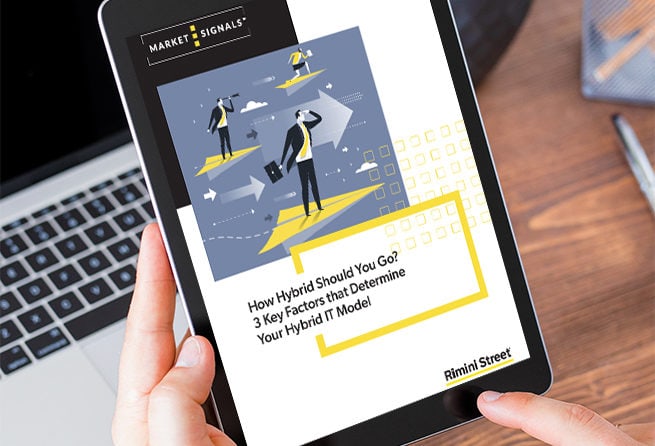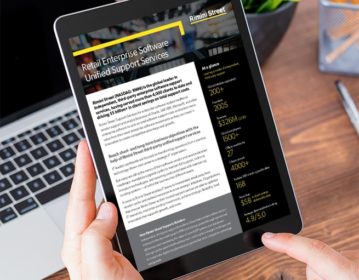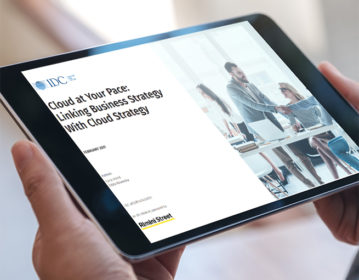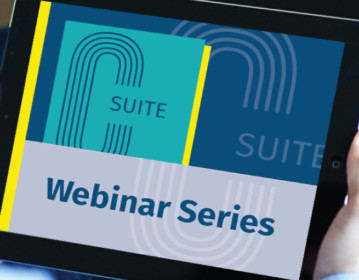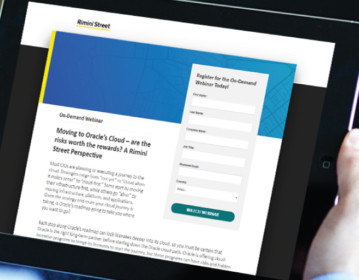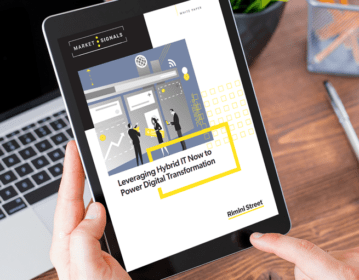Ideally, digital transformation moves at the speed of business. Unfortunately, ERP innovation does not. Hybrid IT solutions can help you keep up.
A hybrid IT environment includes a combination of internally deployed technology and cloud-based technology. The key to optimizing hybrid IT — and hybrid IT ROI — is determining what moves to the cloud and what stays put.
When considering the decision, it’s important to stay focused on your own enterprise rather than what others, including competitors, may be doing. Your criteria for a hybrid IT model will be unique to your business.
What’s the ideal mix? Consider these three factors when designing your hybrid IT model:
- collaboration with other IT ecosystems, including suppliers and partners
- integration risk tolerance for data and processes
- hybrid IT environment security including, e.g., visibility into SaaS security
Moving technology to the cloud is an important, highly visible decision. This white paper contains a detailed analysis for evaluating the factors, best practice recommendations, and a sample framework for assessing cloud readiness.
Read this white paper and start creating your successful hybrid IT model today.
